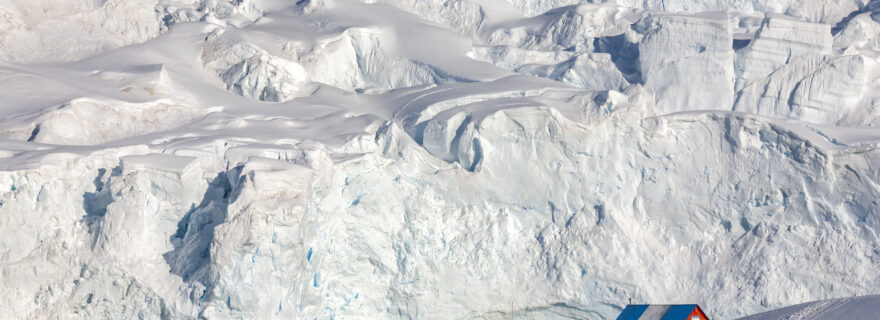What Antarctica can tell us about loneliness and our brains
Antarctica is cold, hazardous, and lonely – and it changes your brain. Not many people have set foot on this icy continent, but the scientists in polar research stations reveal insights into the impact of expeditions to the South Pole on the mind and brain.
The Coldest Place on Earth
Antarctica is breathtakingly beautiful with its endless glaciers, untouched wildlife, and shimmering southern lights. However, it is also one of the most hostile environments for humans on the planet. Winters are characterized by severe cold, violent storms, and at least 6 months of total darkness. It is unsurprising that no human civilization has ever dared to call this unwelcoming continent their home. In recent history, however, scientists from around the world have discovered that the South Pole is a valuable location for learning more about the Earth, climate change, marine biology, and even outer space. But what is it like to live in a polar research station, and how might such a hostile and remote environment affect the human brain?
The Cold is Only the Tip of the Iceberg
It is a difficult task for most of us to imagine spending months in an extreme physical environment like Antarctica. During the long polar winter, the research station is the only protection the expeditioners have from the icy storms raging in the darkness outside. There are no birds to wake them in the morning, no trees for them to stroll under, no signs of life at all. In a recent interview, Pierre Retief, an engineer at the South African Antarctic Base, described it as follows:
“[A] surprise is the complete lack of life. This place reminds me of space or an artificial habitat on Mars.”.
Confined to the research station by the harsh environment, the station’s staff must endure stressors such as restricted movement, environmental monotony, and sunlight deprivation. Moreover, the crews typically consist of relatively few residents during the long winters and external contact with loved ones is often limited. Unsurprisingly, this can lead to a lack of satisfying social interaction, and ultimately a feeling of social isolation. Humans have a fundamental need for social connection: to feel seen and appreciated, to have a sense of belonging with others. Such connections may be disrupted in isolated environments like Antarctica. It seems that even behind the safe walls of the research station, the adventurers cannot escape the cold feeling of loneliness.
What does this mean for the brain?
A study investigating a crew of eight workers before and after their 14-month stay in a German research station in Antarctica made startling findings about the effects of the hostile polar environment on the structure of the crew members’ brains. The results revealed significant shrinkage in an area of the hippocampus and overall gray matter volume loss after the crew returned from their expedition, compared with controls. Along with these changes, crew members scored lower on tests of spatial processing and selective attention. While these anatomical findings mirror the effects of environmental deprivation in animal studies, the circumstances of the polar research crews come with the inherent problem of small sample sizes. Nevertheless, other studies looking at the impact of long Antarctic stays on the mind may allow us to find additional pieces of the puzzle.
To this end, research comparing the psychological outcomes of workers at two Chinese Antarctic research stations made telling discoveries. The crew at the Zhongshan station experienced increased fatigue, anger, confusion, and tension during their stay, while explorers at the Great Wall station reported no psychological disturbances. The reasons for this discrepancy may be found in their environments, as there are several important differences between these bases. Firstly, Zhongshan station lies within the polar circle, meaning it experiences winters marked by long periods of darkness. The Great Wall station on the other hand is situated outside the polar circle and enjoys some degree of sunlight year-round. Another key difference between the research stations is their access to social interaction. While Zhongshan station has no neighboring stations and only restricted telephone access, the residents at Great Wall station had plenty of opportunities for telecommunication and social activities with the surrounding foreign bases, such as celebrating traditional Chinese festivals and joining the Antarctic Olympic Games.
Other research found that members of a team that spent 10 months at the French-Italian Concordia station seemed to enter a state of psychological hibernation, experiencing low sleep quality, indifference, and emotional flatness. While this crew had access to television, music, and gym facilities, the station had no internet access, and communication was limited to restricted email contacts and satellite telephones. Psychological hibernation may have helped the residents cope with the stress of an Antarctic expedition, including social isolation, by mentally disengaging from their situation.
These findings highlight the importance of varied and high-quality social contacts, not just for scientists at the South Pole, but for all of us. Loneliness impacts our mind, brain, and even physical health. We must recognize the importance of our need to belong and reach out to each other, so nobody feels excluded.
Photo credits: Steve Allen





